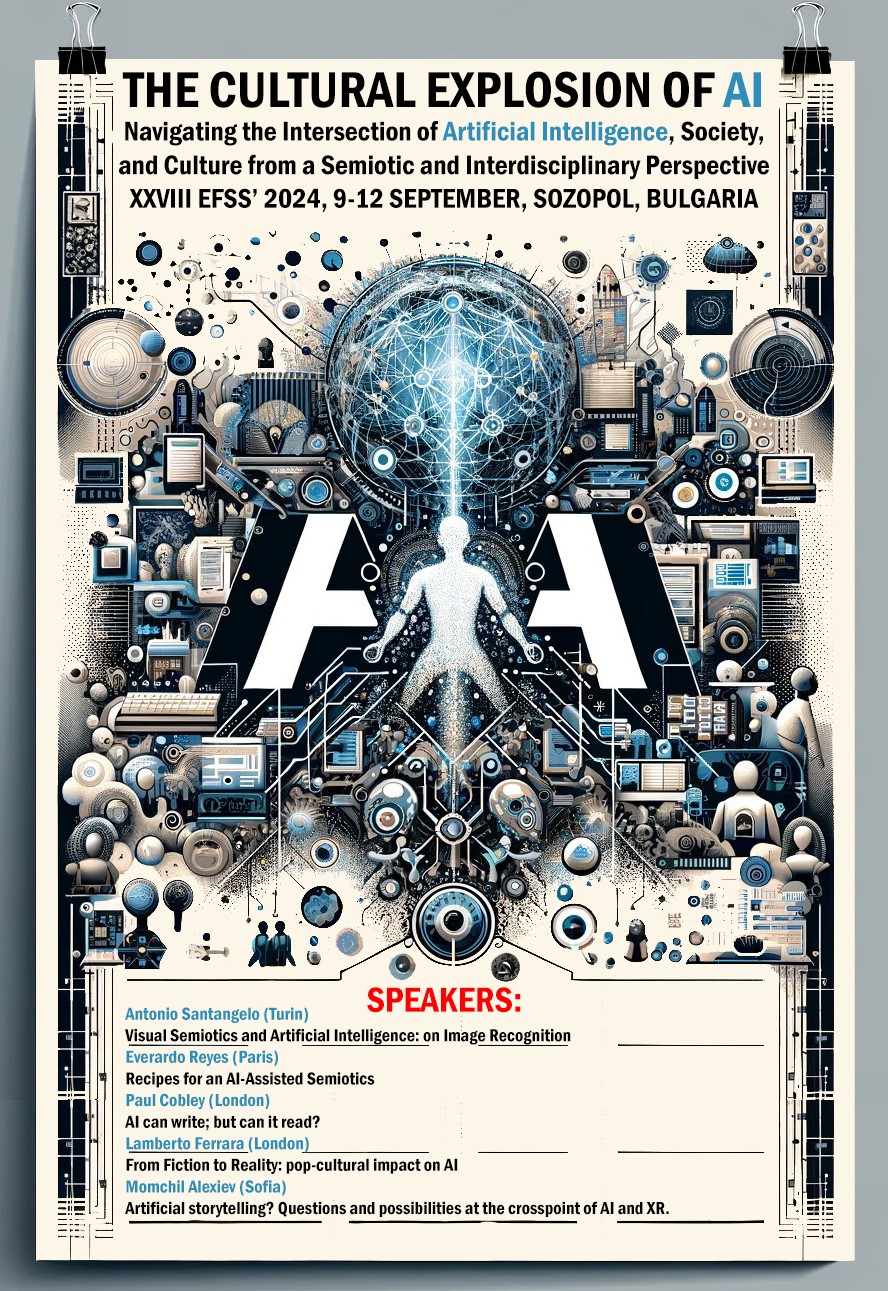Call for Participation EFSS XXVIII 9-12 September 2024 “The Cultural Explosion of AI”

Artificial intelligence has burst into the cultural space with the speed of an explosion. As with any powerful explosion, its initial impact is a spectacular blinding flash, followed by a shock wave with real effects. Perhaps we are still at the very beginning, but often the intensity of the blinding flash is proportional to the real effect that follows, both in terms of sweeping away existing forms and as long-term cultural “radiation”.
According to Lotman, a cultural explosion is a period of transformation when rapid and large-scale changes occur in cultural systems, leading to a significant increase in the creation of new information. It is estimated that artificial intelligence produces as much cultural text in one year as humanity has produced throughout its millennia-long history until the advent of the digital age. More interestingly, this new textual production is entering its most productive phase with the invention of Transformer architecture, which is almost a literal algorithmic realization of Lotman’s concept of translation—the main mechanism of semiotic metabolism in the Semiosphere.
Training Large Language Models (LLMs), which is the foundation of AI, suspiciously resembles the way Umberto Eco models culture in the structure of a rhizome, which computer scientists call a “neural network.” His encyclopedic model is based precisely on what LLMs extract from huge arrays of existing text—the statistic constancy of sign usage. In a polemic with textual immanentists, Eco postulates as part of the reader’s encyclopedic competence the ability to inferentially reproduce the possible contexts of sign usage that make up the text. For many, the “magic” of artificial intelligence in its current form lies in its understanding of our questions to it, achieved with the Attention Mechanism, which, as a principle of cooperation between author and reader, is quite literally described in “The Role of the Reader” (1994).
The hardest to find were a fruitful correspondences between generative semiotics and generative media like Chat GPT, as paradoxical as that may sound, but surely there are such correspondences, and they are likely to be discovered in the future. In any case, as a theory of meaning generation on the one hand and an endless machine for creating meaningful texts on the other, the cultural explosion of AI will not leave this breed of semioticians unemployed.
At the upcoming semiotic and interdisciplinary forum, we invite participants with ideas on the following key topics, but not limited to them:
– Socio-cultural consequences of AI’s advent
– Semiotic theory of generative media
– Transdisciplinary collaboration between semiotics and informatics
– AI in creative practices in the arts
– AI in creative practices in marketing and advertising
– AI in research and education
– Cultural-economic implications of AI
– AI in pop culture
– AI in videogames and XR
In order to enrich the interdisciplinary perspective we are negotiating with more keynote speakers who are leading researchers in AI and Digital Culture.
Selected papers will be published in the 8th issue of the journal Digital Age in Semiotics and Communication (ISSN, DOI, CEEOL)
REGISTRATION FORM (Deadline for registrations: 15 July)
Registration fee: 40 Euro (50 for non IASS members, Free for participants from ERUA partner universities). The fee includes:
– access to all lectures, workshops, seminars and round tables,
– badge and materials,
– 5-6 coffee breaks,
– A welcoming reception on 10 September
EFSS 2024 is organized by the Southeast European Center for Semiotic Studies and the team of WP3 of European Reform University Alliance (ERUA2), with the support of the STRATEGIC DEVELOPMENT FUND of New Bulgarian University
The XXVI EFSS is an event under the auspices of the International Association for Semiotic Studies (IASS)

Leave a Reply
You must be logged in to post a comment.